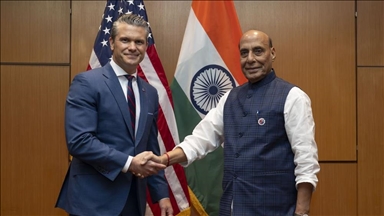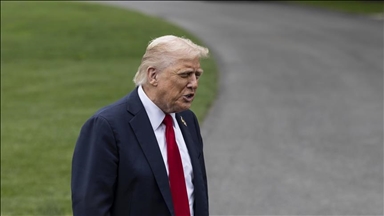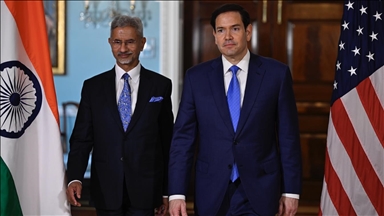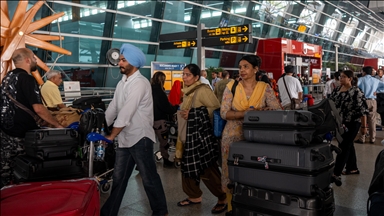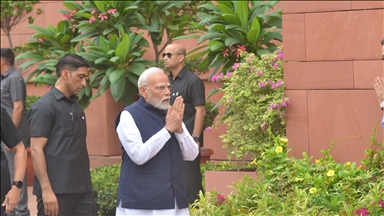Indian premier pushes for ‘secular’ uniform civil code
South Asian nation celebrates 78th independence day amid ‘border, unemployment’ concerns

NEW DELHI
Indian Prime Minister Narendra Modi on Thursday pushed for a uniform civil code in the country, as the South Asian nation celebrated its 78th independence day.
“In our country, Supreme Court has held discussion on uniform civil code. … A big section (of society) believes and there is truth in this, the current civil code is rightly a communal civil code, which is a discriminatory civil code,” Modi said in his address from the ramparts of historic Red Fort in New Delhi.
Modi said there must be a discussion about it and that everyone should come forward with their opinions.
“A secular civil code in the country is the need of the hour,” he added.
India is celebrating its 78th independence day on Thursday, while facing issues over border security and unemployment, besides political changes in the region, experts told Anadolu.
For the first time since being elected in 2014, Modi addressed the nation with a diminished political mandate.
Amid heightened security cover in the capital, some 6,000 guests attended Modi’s address in person.
Apart from the main function in New Delhi, rallies and flag-hoisting ceremonies are being held across the country to mark the day.
Celebrations serve as a “platform to provide a renewed push to the government’s efforts towards transforming the country into a developed nation by 2047,” said the Defense Ministry.
The South Asian country attained independence following the end of British colonial rule in the sub-continent on this day in 1947.
‘Many challenges’
On India's 78th independence day, New Delhi-based analyst Niranjan Sahoo told Anadolu that India faces “many challenges,” including unemployment and border security issues.
The results of the general elections in June gave the Bharatiya Janata Party 240 seats in the Lok Sabha, or lower house of parliament -- 32 short of the majority it would need to form a government on its own.
It was only with the support of its partners that the Modi-led government was able to secure its third term with 293 seats.
“Internally, India has many uphill challenges,” said Sahoo.
He said the foremost challenge is “securing borders (Jammu and Kashmir and Ladakh facing China) and maintaining political stability in turbulent Manipur and Jammu and Kashmir.”
The northeastern Indian state of Manipur saw ethnic clashes last year, while Jammu and Kashmir has remained without an elected government since 2018.
India and China are also entangled in a border dispute along the Line of Actual Control in Ladakh.
“India's border regions, particularly the northeast, face the most serious challenges owing to the tense situation in Myanmar and Bangladesh,” he said.
Sahoo also said that “rising unemployment,” particularly youth unemployment in the demographically significant north, is becoming "a major headache" for policymakers in New Delhi.
While the Modi government “claims to have created millions of jobs in the last few years, this hardly raises confidence, given the number of youth protests one has witnessed in northern states in the last few years,” he said.
According to government data released in July, the unemployment rate in the world’s most populous nation has been on a “declining trend over the years.”
Political changes in neighborhood
While Human Rights Watch noted that hate speech “fueled” Modi’s election campaign early this year, Sahoo said “refugees and illegal migration challenges are very real and tricky, given that the situations are dramatically transforming” in neighboring Bangladesh and Myanmar.
Myanmar, entangled in an internal ethnic conflict, has seen people taking refuge in India.
Early this month, India’s longtime ally, Bangladesh's former Prime Minister Sheikh Hasina, fled the capital Dhaka following the student-civilian uprising that ended her 15-year-long rule on Aug. 5.
India is “struggling to manage its relations with Bangladesh in the background of the sudden ouster of Sheikh Hasina, a long-time ally of India, and the possible takeover of power by the Bangladesh Nationalist Party and its alliance partners,” said Sahoo.
Anadolu Agency website contains only a portion of the news stories offered to subscribers in the AA News Broadcasting System (HAS), and in summarized form. Please contact us for subscription options.



